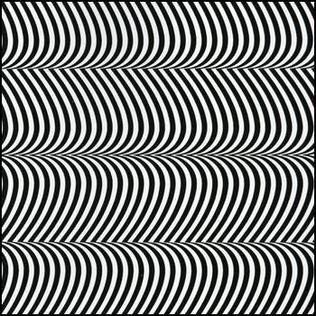Merzbox is a box set compilation by the Japanese noise musician Merzbow. It consists of 50 CDs spanning Merzbow's career from 1979 to 1997. 30 discs are taken from long out of print releases, while 20 are composed mainly of unreleased material. The box also contains two CD-ROMs, six CD-sized round cards, six round stickers, a poster, a black long-sleeve T-shirt, a medallion, and the Merzbook, all packaged together in a "fetish" black rubber box. It is limited to 1000 numbered copies. A Merzbox Sampler was released in 1997.

Pulse Demon is an album by the Japanese noise musician Merzbow, released 28 May 1996. The album was reissued on vinyl in May 2018 by Bludhoney Records, and again in November 2019 by Relapse, with a bonus track.

Merzbird is an album by the Japanese noise musician Merzbow. It continues the beat-oriented work of Merzbeat. The outer sleeve depicts a performer of the Shirasagi no mai, the inner sleeve has a black metal-style photo of Masami Akita.

Batztoutai with Memorial Gadgets is a double album by the Japanese noise musician Merzbow. It was released in a limited edition of 1,000 copies. The album was later remixed and reissued in 1993 as Batztoutai with Material Gadgets. Full-length tracks were included in the Merzbox, along with an unreleased track from the sessions.

Last of Analog Sessions is a box set album by the Japanese noise musician Merzbow. It is composed of three completed, but unreleased albums recorded before his switch to laptop.

Merzbeat is a studio album by the Japanese noise musician Merzbow. It features beats sampled from rock, just like 1998's Aqua Necromancer. However, the beats are more prominent and the noise is simpler than earlier albums. "Promotion Man" samples the song of the same name and "I'll Do It All Again" by the 1970s hard rock band Highway Robbery. This is the first album to feature Minazo on the cover along with the reproduction of Azuchi Castle.

Merzbuta is an album by the Japanese noise musician Merzbow. It continues Merzbow's rhythmic oriented work on Important Records, and features samples from the last three discs of the Merzbox. Buta (豚) means pig in Japanese.

Age of 369 / Cant 2 is a compilation album by the Japanese noise musician Merzbow. It compiles two cassettes released by ZSF Produkt in 1984: Age of 369 and Chant 2, plus a bonus track from the 6x10=60 Vol. 1 compilation.

Mercurated is an album by the Japanese noise musician Merzbow.

Merzbow is a Japanese noise project started in 1979 by Masami Akita. Merzbow is best known for a style of harsh, confrontational noise. Since 1980, Akita has released over 400 recordings and has collaborated with various artists.

Rainbow Electronics 2 is an album by the Japanese noise musician Merzbow. It is an alternate mix of the 1990 album Rainbow Electronics.

Microkosmos | Volume 1 is an album by the Japanese noise musician Merzbow, the first in an announced series of five. The series features artwork from a collection of visual collages created by Masami Akita from 1982–83. As of July 2016, no further volumes have been released.

Antimonument is an album by the Japanese noise musician Merzbow. It was originally released as a picture disc LP and reissued on CD by Art Directe in 1991. The CD is now considered a bootleg since the label did not pay the artists.

Merzbient is a boxed set album by the Japanese noise musician Merzbow, it is composed of previously unreleased raw material recorded 1987–90.

Ecobondage is an album by the Japanese noise musician Merzbow, it uses "handmade thin metal percussion, with an emphasis on scratched metal noises".The title stands for "Bondage Economy". The album was inspired by Michel Foucault's book The Birth of the Clinic, and Masami Akita wrote Anagram of Perversion, his first book, during the recording of the album.

Pornoise/1 kg is a box set album by the Japanese noise musician Merzbow. Additional material from the sessions was released as Pornoise/Extra.

Uzu Me Ku is an album by the Japanese noise musician Merzbow. It features the Koto, a traditional Japanese instrument, "manipulated through granular synthesis by digital and analogue electronics devices." According to Masami Akita, "Uzume Hikoyuzu" means "spiral generating" and "Itsu Akitsu" means "generating of particles". The album photos were taken at the Nagasawa Purification Plant in Kawasaki, Japan, which was designed by Mamoru Yamada.

Merzphysics is a box set album by the Japanese noise musician Merzbow, it is composed of previously unreleased recordings from 1993–95.

Ko To No O To is a 7" release by the Japanese noise musician Merzbow. It is the first in a series of 7"s by seven different artists on the label.

Duo, subtitled Masami Akita & Kiyoshi Mizutani Selected Studio Sessions 1987–89, is a box set album by the Japanese noise project Merzbow. It is composed of unreleased studio sessions recorded with Kiyoshi Mizutani. Some of these recordings were used as raw material for solo releases like Scissors for Cutting Merzbow, but the original recordings were unreleased until now. These recordings mirror albums like Ecobondage, Enclosure, and Storage. The art edition comes with a bonus CD with a recording from 1979.



















